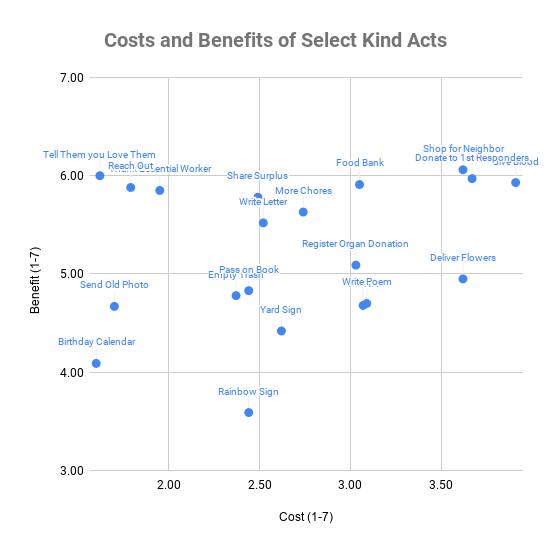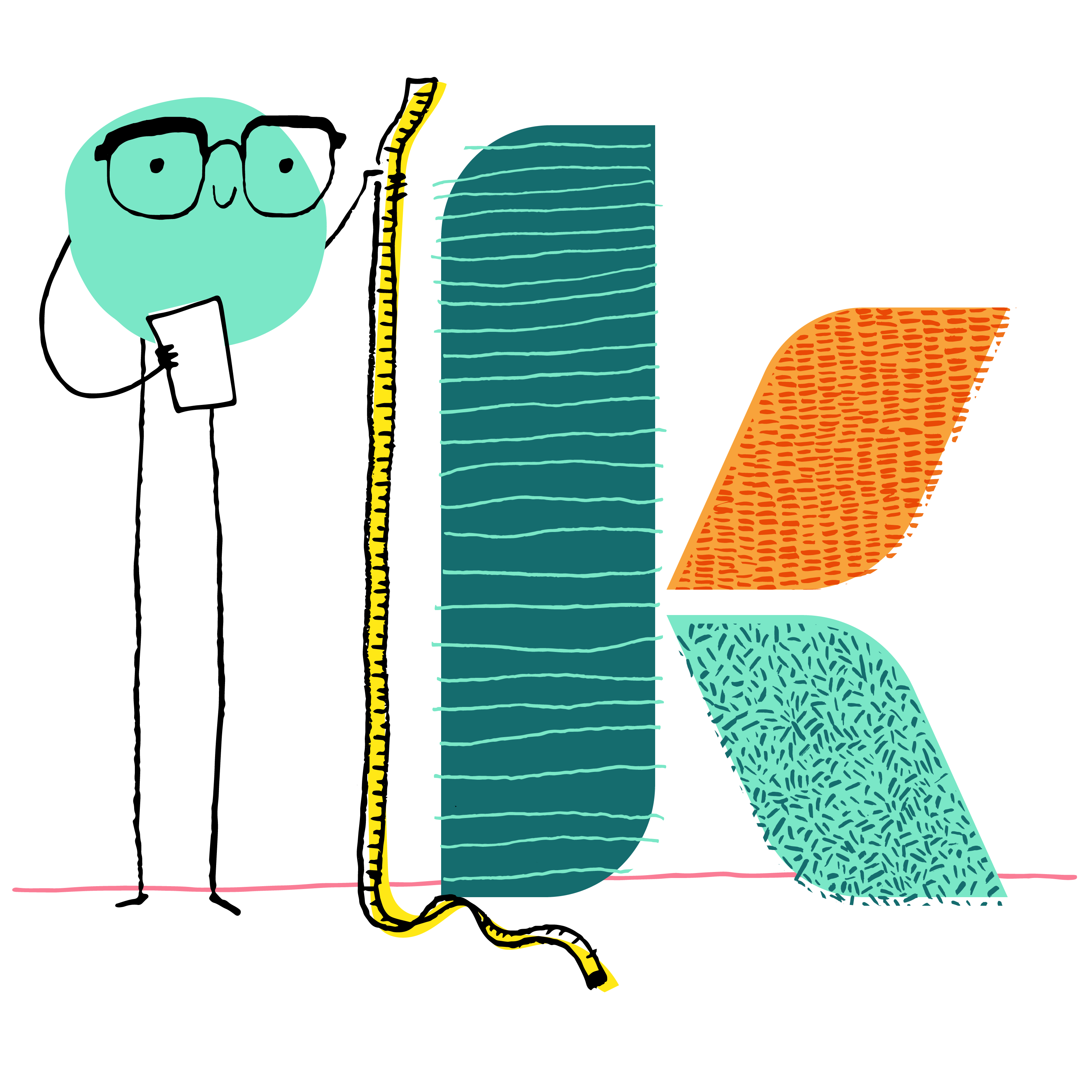Editor’s Note: This is a wonderful, insightful post from our friends at Kindness.org who graciously let us repost their original content (originally titled, “How To Be Kind In A Crisis”). Enjoy.
Our mission at Kindness.org is to educate and inspire people to choose kindness.
To that end, we have been developing a system for testing and evaluating the costs and benefits of different acts of kindness, and thereby identifying the most effective kind acts you can do for others. Our research team, in collaboration with researchers at Harvard University, spent the past several months compiling a list of over 1,000 acts of kindness – drawn from our community, and from popular and professional lists – to put to the test. We were planning a series of seven studies that would evaluate these acts – in schools, in workplaces, and in everyday life, in different cultures around the world – and help us replace random acts of kindness with recommended acts of kindness.
However, when COVID-19 brought our world to a halt, we saw an opportunity – and felt a responsibility – to investigate what kind acts are most effective now, in the middle of this crisis.
What did we do?
We selected a short-list of 100 acts of kindness that could be done while in quarantine or while social distancing. And we asked a sample of US citizens to rate how costly these acts would be to perform (in terms of time, money, and effort), and how beneficial they would be to receive.
We then took the average costs and benefits of these acts and used this data to calculate the most (and least) cost-effective acts – that is, the acts that generated the most benefit (for the recipient) for the least cost (to the giver).
What did we find?
We found that almost all the acts on our list were considered relatively low cost, and relatively high benefit (see chart). We also found, somewhat surprisingly, that the high-cost acts were not considered any more beneficial.

But which acts were the best performers?
Well, according to our survey, the Top Ten Most Beneficial Kind Acts are:
1. Wash your hands.
2. Take care of a family member who is sick.
3. Cover your mouth when you cough.
4. Make a donation to people hit especially hard by the economic shutdown.
5. Cook a nutritious and delicious meal to share with your family.
6. Buy groceries for someone.
7. Arrange video visits with elderly relatives.
8. Video call your parents, grandparents.
9. Get shopping and other essentials for a neighbor.
10. Tell a child what you’re proud of them for.
And the Bottom Ten Least Beneficial Acts of Kindness are:
91. Respond kindly to a negative comment online.
92. Leave art for someone to find.
93. Place a positive sign in your yard for someone.
94. Invent holidays and give gifts to someone.
95. Join a local neighborhood group.
96. Add someone’s birthday to your calendar.
97. Volunteer to be infected as part of vaccine trials.
98. Spend 30 minutes learning about a social issue.
99. Put a positive ‘rainbow sign’ in your window.
100. Learn how to say ‘please’ & ‘thank you’ in five different languages.
The Top Ten Least Costly Kind Acts are:
1. Say thank you to someone who made your meal possible.
2. Be on time for video calls.
3. Cover your mouth when you cough.
4. Write a list of things you love about someone.
5. Add someone’s birthday to your calendar.
6. Tell the people you love how you feel about them.
7. Share a positive news story with someone.
8. Video call your parents, grandparents.
9. Thank someone who made a difference in your life.
10. Share a good joke with someone.
The Bottom Ten Most Costly Kind Acts are:
91. Make free creative content — music, cookery lessons, exercise classes — available online
92. Make a donation to people hit especially hard by the economic shutdown.
93. Volunteer your time to a good cause.
94. Choose a charity, and set up a regular donation.
95. Buy groceries for someone.
96. Take care of a family member who is sick.
97. Give blood.
98. Fix a leaky faucet for someone.
99. Point, click, and donate $50, or what you can, to a worthy cause.
100. Volunteer to be infected as part of vaccine trials.
Putting this all together, Top Ten Most Cost-Effective Kind Acts are:
1. Say thank you to someone who made your meal possible.
2. Cover your mouth when you cough.
3. Be on time for video calls.
4. Tell the people you love how you feel about them.
5. Video call your parents, grandparents.
6. Write a list of things you love about someone.
7. Wash your hands.
8. Tell someone what they mean to you.
9. Reach out to someone and ask them how they’re doing.
10. Thank someone who made a difference in your life.
And the Bottom Ten Least Cost-Effective Kind Acts are:
91. Make free creative content — music, cookery lessons, exercise classes — available online
92. Do the gardening for someone.
93. Volunteer your time to a good cause (https://tinyurl.com/ugofayu)
94. Choose a charity, and set up a regular donation.
95. Arrange for a bunch of flowers to be delivered to someone
96. Fix a leaky faucet for someone.
97. Learn how to say ‘please’ & ‘thank you’ in five different languages.
98. Point, click, and donate $50, or what you can, to a worthy cause.
99. Invent holidays and give gifts to someone.
100. Volunteer to be infected as part of vaccine trials.
What does all this mean?
Our survey suggests that the most effective kind acts you can do right now include: practicing good hygiene, video-calling relatives, making and sharing meals with your family, telling your loved ones how you feel about them, and helping neighbors with groceries.
If you are doing these things, great! You are likely in good company. If you are doing other things, also great! You may be performing some of the more difficult acts that others are unable or unwilling to do. In any case, we hope this information helps you find the kind acts that are right for you.
Next steps
Of course, this one study is just the beginning. In the future, we’re keen to examine what kindness during a crisis looks like across virtual workplaces, for families and people in quarantine with children, and in the digital space. And we need your help to make this research the best it can be. Here are two questions you can help us answer:
- Are there acts we have missed? Acts that you’d like to see added to the list in future studies? If so, drop us an email at hello@kindness.org with your suggestions.
- How costly and beneficial are these acts for real? Join our Kindness community, try the acts for yourself, and let us know how you get on.
Hopefully, it won’t be too long until we can get back to our plan of building that database of 1,000 acts of kindness. Until then, by working together, we can all make the world a kinder place.



0 comments on “The Top 10 Best Ways to Be Kind in a Crisis”